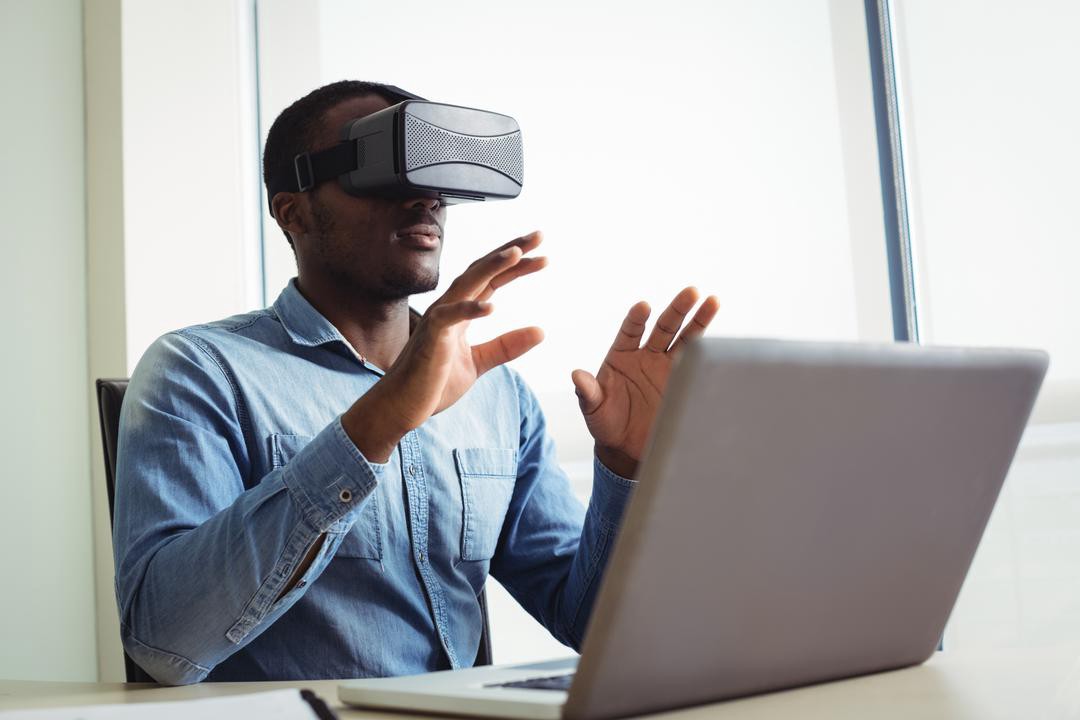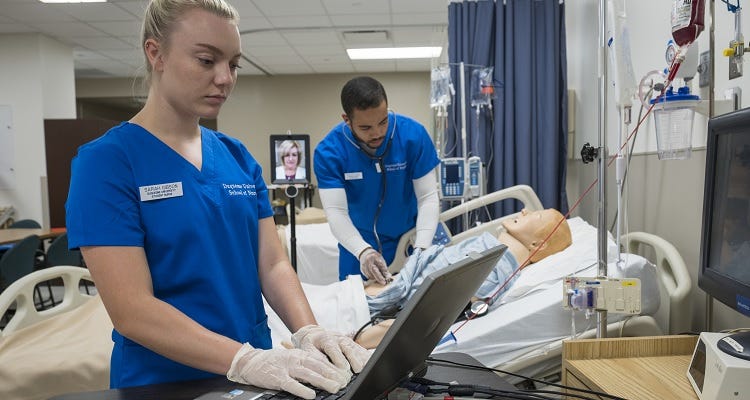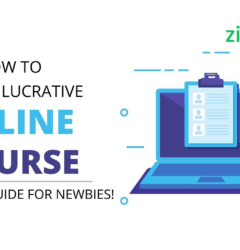How Game-Based Learning & Simulated Reality Are Advancing Education
05 Apr

Table of Contents
ToggleThink back to your days in school. When you first started attending, it was a lot of fun. Your teachers got you involved, you played games while learning, and you actively participated. Yet, the farther you get into education, the games start to dry up. Lectures and note-taking became the norm in the classroom, and suddenly the fun part of learning was gone. You went from being an active part of education to a passive listener.
Yet, this doesn’t have to be the case in the world. Just because we grow older doesn’t mean we can’t benefit from game-based learning and actively participating. Using games and simulated realities not only lets us see direct results on what we learn, but can make learning fun again. That’s why it’s such a game-changer in online education.
Giving Science Students Means to Practice Theories
Science classes are a prime example of a subject that can benefit from game-based learning. As a child, many science classes involved doing experiments to learn. That meant growing plants, creating cyclones in two-liter bottles, and mixing things together. It was hands-on and easy to apply to the real world.
As the science gets more complex though, the harder it is to experiment and see first hand. When you start learning about the effects of massive amounts of radiation or how nuclear fission works, it’s not exactly possible for a class to get their hands on enough Uranium to play around.

But, thankfully, video games of this subject matter can help students learn more complex theories and give them the opportunity to experiment. For example, professors at Arizona State University along with instructional designers and game creators, have developed a game that makes science more accessible to non-science majors. The game touches upon the subject of life beyond Earth and provokes ideas about science.
In this way, video games that teach science topics can add to the teaching in classes and labs. Video games covering science subject matter could also mean the subject matter is accessible to and intuitive for more people.
However, there are caveats. If you are thinking of incorporating video games to replace or supplement your science classes, be sure that it’s not a game devoid of learning value. While incredibly fun and useful, video games can also be distracting or lead students to focus on the wrong details. Whether you create a game from scratch or find one already made, make sure the subject matter revolves solely around scientific subjects.
It’s also possible to find ways to teach subject matter with games outside of how the game was originally designed. For example, the main purpose of the game “Minecraft” is to explore, craft and occasionally fight, but it’s actually possible to build a calculator and basic computer in the game.
So, if you’re struggling to teach complex scientific concepts to your students, consider looking for games that can simulate the experience you are looking for. One such example is Valve’s “Portal 2” which is free with their Steam for School program. “Portal 2” could be used to teach different physics concepts, and can also allow teachers to design their own levels to make sure it focuses on a specific concept. Want to teach gravity? Make a level that requires students to calculate how high up they need to jump in order to make it through a portal.
Giving Experience for Dangerous Situations
How do you train a heart surgeon? They can learn all the theories in the world, but at some point, they need to get hands-on experience. Practicing on cadavers is a good start, but it can’t create realistic conditions. In the past, that meant being part of a real surgery with another surgeon nearby, but a mistake here could mean serious consequences.
Thanks to new technology, especially in VR, it’s possible to create realistic simulations for dangerous fields like medicine. Nurses and doctors can get realistic virtual training online without putting patients at risk. That means newer people to the field can be better prepared and equipped for emergency situations.

It’s not just limited to the medical field though. The military is using virtual simulations to better train soldiers for combat. Construction companies are using it to help those who have to get 30 stories high with being comfortable being so high up.
Giving training and experiences isn’t just limited to dangerous professions. Many different career options can utilize virtual training, from customer support to engineering.
Using VR to train students online though does get expensive. Many VR games require an Oculus or HTC Vive to work, which are not cheap and require high-end computers to operate. If you have a small class every semester, you might be more inclined to rent out the necessary supplies for the class, rather than buying material.
Giving Context and Insights to History
Sometimes, when you learn about history, you just want to go back in time to see what it was like. One complaint that students have with history is that it can often be boring or hard to understand for some because they just can’t relate to the subject matter. For others, history classes might just feel like remembering dates and names with little understanding of why they are important.
With video games and VR, it’s possible to make history come to life. Video games could help tell the stories and history of important figures in history and give a visual scope of events in their world. They could immerse themselves in the world of old with virtual reality and understand how people lived without electricity or working plumbing.
Social studies and politics can get a similar treatment. Utilizing video games of these subjects can put students in a country of virtual people or government. They could learn how people interact in different scenarios and discover political systems from the inside.

A prime example of this is Assassin’s Creed education model for their latest game. It takes out the combat and story of the game and allows its players to wander ancient Egypt and learn. It has detailed explanations of things like architecture, different rulers, and how people lived at the time.
Focus on games that teach an experience people went through, like how difficult it was to travel across the US with “The Oregon Trail” or the brutality of war with “Valiant Hearts: The Great War”.
Improving Education By Engaging with Students

Students always learn better when they can get actively involved. The problem is, when they get higher up in education, there is less time for each student. It becomes harder to plan activities and have the resources to create ways to engage with classes.
Using video games, simulation in education, and game-based learning, schools can help students connect with the subject matter and give much-needed training and experience. As schools and courses start to see more success from game-based learning, especially online classes, it will hopefully become a normal part of education as a whole.
This is a guest post for zipBoard’s blog by Avery Phillips.
Implement game-based and stimulated relaity e-learning courses with zipBoard
If your team is looking to implement new interactive tools for designing interesting learning experiences, request a personalised demo to coordinate the design and development during eLearning reviews.
Get DemoRelated Post
Recent Posts
- Why Your Team Needs a Content Feedback System (Not Just Comments in Docs) May 28, 2025
- Content Approvals Are Slowing You Down — Here’s the Fix May 26, 2025
- How to Streamline Content Review and Approval — Best Practices, Tools & Automation May 12, 2025
- What Is Content Operations? And Why It Breaks Without a Feedback & Approval System May 3, 2025
- Why Designers Need a Website Visual Feedback Tool: Improve Design Reviews & Client Collaboration April 25, 2025
©️ Copyright 2023 zipBoard Tech. All rights reserved.


